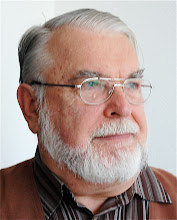The objective and subjective in maths and religion
If you can accept the existence of an independent mathematical world (as many mathematicians, the so-called Platonists, do), which nevertheless somehow interacts with both the physical and the mental world, then it is easier for you to accept the existence of an independent Transcendent (spiritual) world of (Christian) religion which somehow interacts with both our physical and mental worlds.
The question is not whether a mathematician invents or discovers mathematics; the question is in what relation are these two complementary aspects of his/her activity. The question is not whether what a Christian believes in has an objective existence or is purely a product of his/her mind; the question is in what relation are these two complementary aspects of his/her faith.
The question is not whether a mathematician invents or discovers mathematics; the question is in what relation are these two complementary aspects of his/her activity. The question is not whether what a Christian believes in has an objective existence or is purely a product of his/her mind; the question is in what relation are these two complementary aspects of his/her faith.

